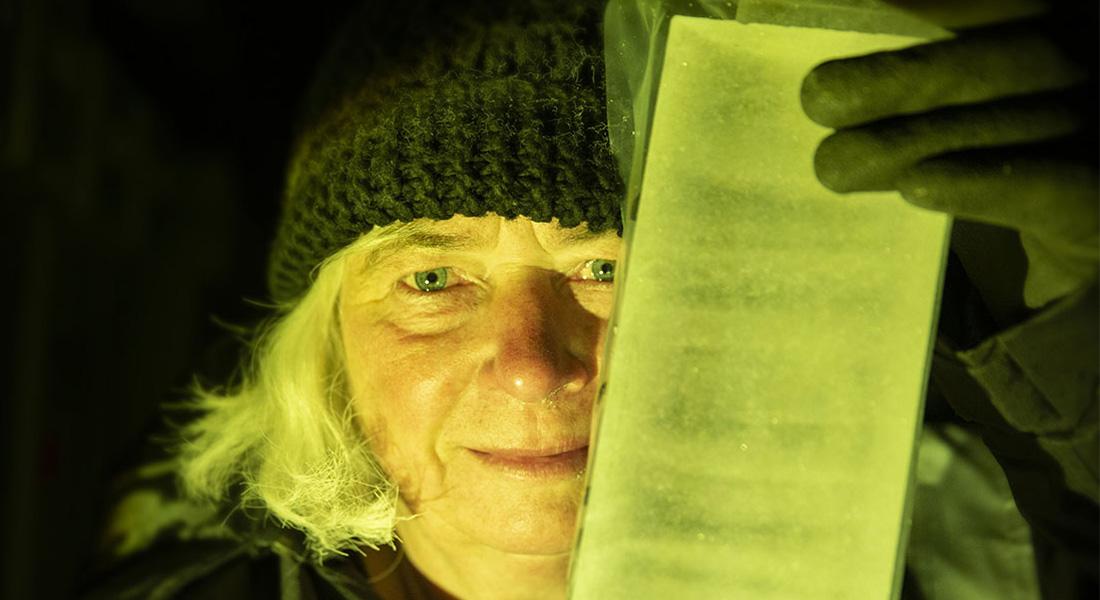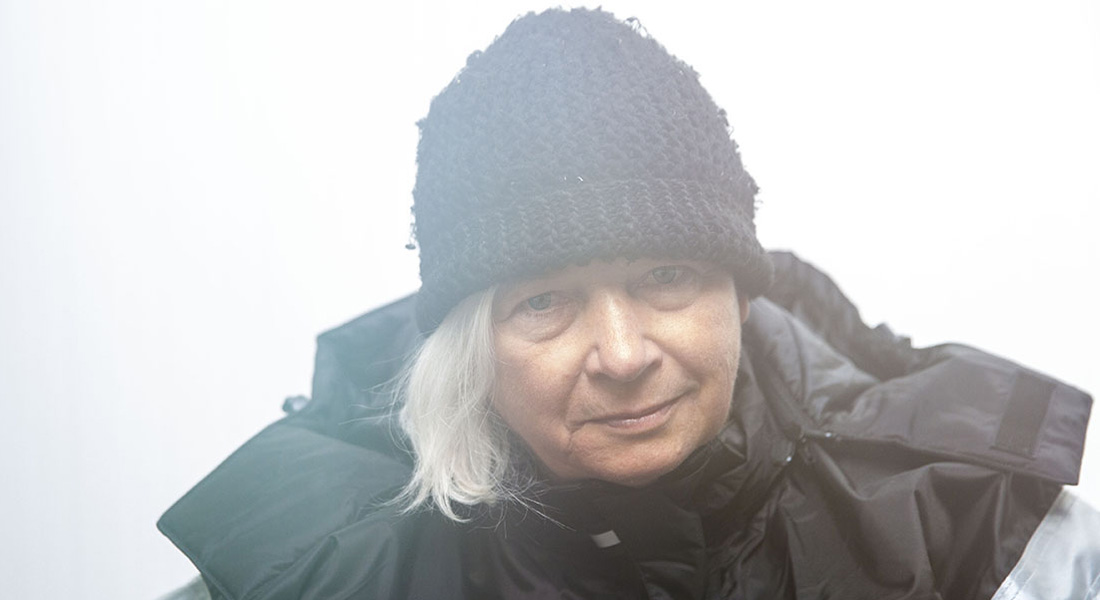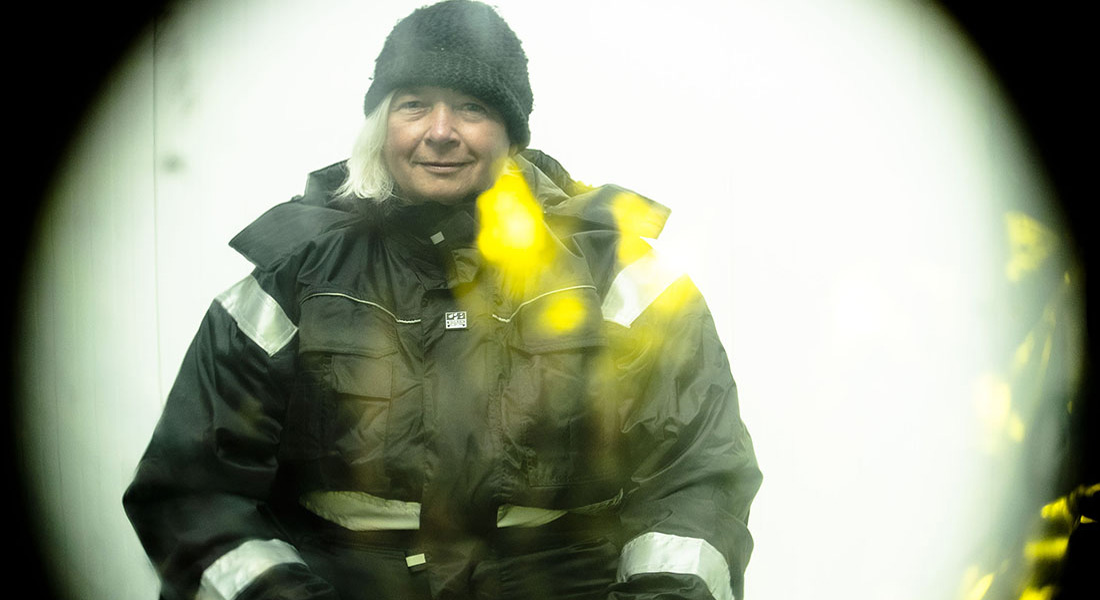Dorthe Dahl-Jensen awarded Hans Egede Medal
On Wednesday, ice core researcher Dorthe Dahl-Jensen was awarded the Hans Egede Medal for her research into Earth’s climate history. Her research has included longer stays on Greenland's deserted ice sheet and offers a look directly into the past.

"I've probably been on the ice for a total of two years in all. Maybe a bit more than two. I've never sat down and added it all up. It would probably be quite depressing to figure out, so maybe it's better not to."
Dorte Dahl-Jensen is a researcher at the Niels Bohr Institute. Once a year, her work takes her to the Greenland ice sheet for 1-2 months at a time. Once on the ice, her research focuses on reconstructing the climate of the past using ice core data.
Knowledge about the climate of the past is essential to make qualified suggestions with regards to how climate will change in the future. As such, knowledge from Dorthe Dahl-Jensen and her colleagues' ice core research contributes to current climate models.
"Everything is preserved in the ice. As snow is compressed into ice, small air bubbles become trapped. Within them, we can get a direct read of the atmosphere from when the snow fell. In this way, we can gauge the composition of greenhouse gases and CO2, among other things, throughout the ages. For this, it is one of the most important sources for learning about climate change," she explains.
Hans Egede Medal
This body of work has led to Dorthe Dahl-Jensen being awarded the Hans Egede Medal by the Royal Danish Geographical Society, making her only the second woman to receive the medal since its founding in 1916.
"It's an extraordinary honor and I'm very proud to have been awarded. It's a colossal recognition of my work. It shows that there are others than myself who think that what I do is important, and it definitely encourages one to strive for more," says Dorthe Dahl-Jensen.
Queen Margrethe presented the medal, which is issued as an award for outstanding service to the geographical sciences. The medal has only been awarded on one other occasion since the turn of the millennium, when Bo Elberling of the Department of Geosciences and Natural Resource Management received one in 2017.
The Ice Camp
Dorthe Dahl-Jensen will head to Greenland for her 25th trip on 10 June. Or so she believes – she's hasn't been counting. The camp is located on the ice in the middle of Northeast Greenland, more than 1000 kilometers from Kangerlussuaq, where the expedition's logistical office is based.
The international camp houses about 30 people and consists of a series of tents, a few excavated ice caves where ice core drilling takes place, and the round wooden main building, which they refer to as the 'Dome.'
"It's heated, we have a cook with us, and there's internet, a sink, shower and toilet. For the most part, it is relatively pleasant, explains Dorthe Dahl-Jensen, who in addition to her research work is also a field leader at the camp.

"One of the first things you notice, when landing in the middle of the ice sheet, is the lack of sensory inputs. Apart from the camp, everything is white on white, and it is very rare for any living thing to travel so far inland. This also means that there really are no sounds or smells, other than from the camp or the roar of the wind during a storm. Many people compare the solitude to travelling in the middle of the ocean." From the Centre for Ice and Climate.
Photo: Emilie Thejll-Madsen
As a field leader, she has to make sure that things run smoothly, from practical and logistical concerns, like arranging supply flights to the camp, to managerial aspects, like the well-being of colleagues.
"It's important for people to prosper, because we're very isolated and have nowhere to go if we don't like being there. For the most part, there are no problems, but there are still situations that arise from time to time. That's when it's my job to make sure that people are having a good time," she says and elaborates:
"I think it's fascinating to be so close with a group of people for as long as we are. It makes it very easy for your colleagues to become your friends. So, it's an exciting way to be together, and it makes for a varied year."
Ice from Roman times
The large ice sheet being drilled into contains a vast amount of world history. Every year, a new layer of snow falls, and as the years go by, the snow is compressed and becomes ice. By drilling ice cores from several kilometers deep, the researchers can count layers as far back as 60,000 years ago.
"For example, we can see all of the major volcanic eruptions by measuring the sulphate content in the ice cores," explains Dorthe Dahl-Jensen and continues:
"We can also see how mercury and metals made it into the air as a result of industrial development. As far back as Roman times, we can clearly see that the content of heavy metals in the atmosphere has increased."

The team was scheduled to reach the bottom of the 2600-meter-thick ice sheet this summer, but due to COVID, they haven't been able to go for the past two years. Indeed, most of the camp is now buried in snow. And since it will take a fair amount of time to dig the tents free, Dorthe Dahl-Jensen does not expect the team to reach the bottom this year. Nevertheless, she looks forward to drilling down into the lower layers of the ice sheet, an unknown territory for a seasoned scientist.
"We live on an ice stream, so our camp moves 50 meters a year. We've never drilled into an ice stream before. And when it moves at a pace of 50 meters every year, there's going to be a lot of water at the bottom that the ice cap is sliding on – which is something that we don't really know all that much about. It will be the first time that it has ever been seen, so definitely exciting!" she concludes.
Contact
Dorthe Dahl-Jensen
Professor
Niels Bohr Institute
University of Copenhagen
Mail: ddj@nbi.ku.dk
Telefon: +45 35 32 05 56
Mobil: +45 22 89 45 37
Jonas Nielsen
Communications Officer
Faculty of Science
University of Copenhagen
Mail: jonie@science.ku.dk
Telefon: +45 40 90 12 89
